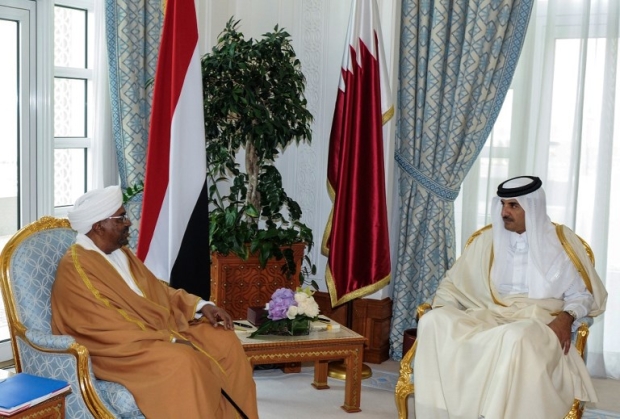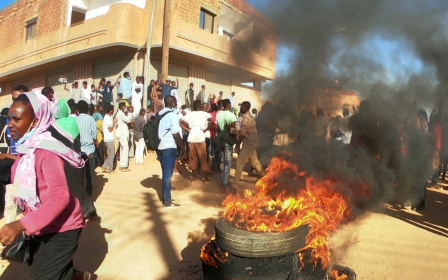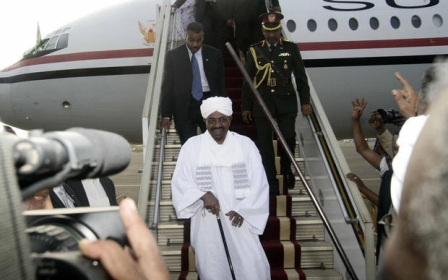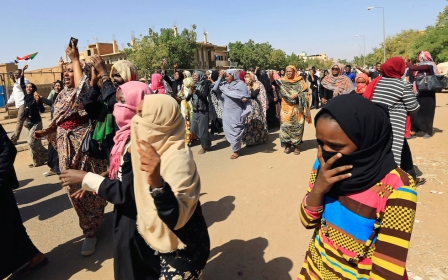UAE, Russia and Turkey pledge aid to Sudan amid ongoing protests
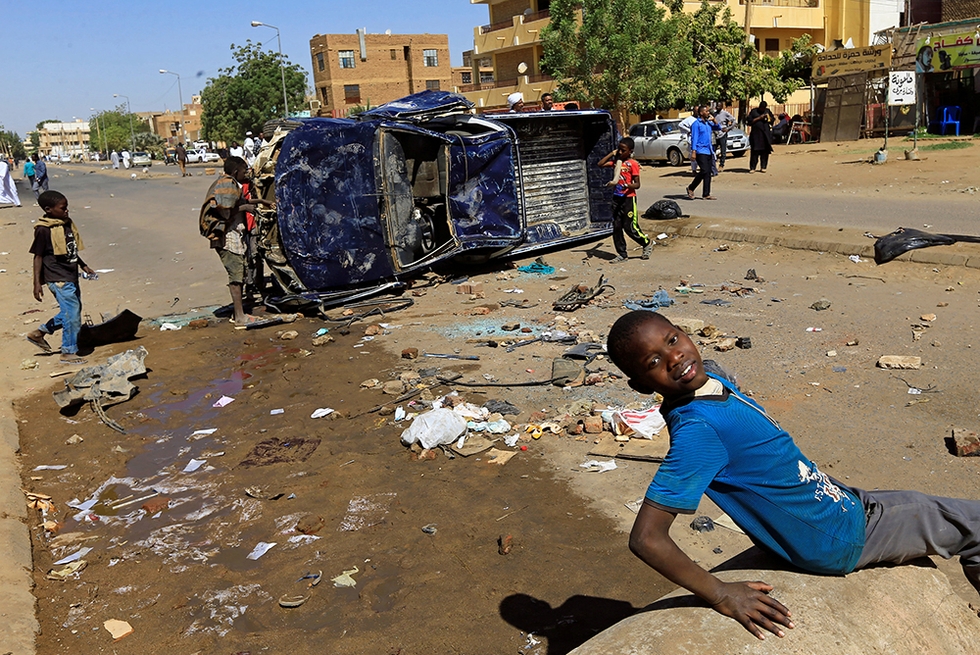
Sudan, rocked by more than a month of anti-government protests, has received economic assistance from the United Arab Emirates and offers of support from Russia and Turkey, a Sudanese official said on Wednesday.
The UAE offered unspecified help, while Russia and Turkey pledged fuel, wheat and other aid, Sudan’s Oil Minister Azhari Abdel Qader said, without giving details regarding the scale or timing of the aid.
"We accepted it as a normal matter between friendly countries in light of the current circumstances that Sudan is going through," Qader said.
Russian private contractors have been training Sudan's security forces, Russia's foreign ministry said on Wednesday.
"According to our information, representatives of Russian private security companies, who have nothing to do with Russian state bodies, really do operate in Sudan," Maria Zakharova, a spokeswoman for the Russian Foreign Ministry, told reporters.
"Their task is limited to training staff for the military and law enforcement agencies of the Republic of Sudan," she added.
Bashir's visit to Qatar
Meanwhile, Sudanese President Omar al-Bashir met with Qatar's Emir Sheikh Tamim bin Hamad al-Thani in Doha on Wednesday for a two-day visit, marking Bashir’s first trip abroad since the protests began last month. Bashir returned to Sudan later the same day, according to a Reuters news agency report.
Sudan's foreign minister, Al-Dirdiri Mohamed Ahmed, said Bashir had discussed with the Qatari emir "the current economic crisis experienced by Sudan and Sudan's efforts to emerge from the crisis, and the role of brothers in general, and Qatar in particular, to help Sudan".
"Qatar reiterated its firm and continuous support for Sudan," he said, speaking to reporters at Khartoum airport after Bashir's return.
The near-daily protests in Sudan began on 19 December, amid worsening economic conditions and calls for an end to Bashir's 30-year rule.
Sudan's information minister, Bishara Jumaa, told Saudi-owned broadcaster Al Arabiya that the government has "taken steps" to end the economic crisis.
“By March, God willing, matters will be completely resolved,” he said on Wednesday.
Jumaa said those calling for the Thursday protests were "politicians" seeking to hijack the protests for political aims.
Predicting violence, the SPA said it will provide emergency facilities for injured protesters.
Security forces have used tear gas and sometimes live ammunition to break up the demonstrations, as well as arresting protesters and opposition figures.
The official death toll from more than a month of unrest stands at 26, including two security personnel. Rights groups, including Human Rights Watch and Amnesty International, say at least 40 have died.
Since the protests began, more than 800 people have been arrested, including journalists, activists and opposition party members, a Voice of America report said on Wednesday.
US expresses concern about Sudan arrests
The United States on Wednesday urged Sudan to release activists detained in a wave of protests and to allow peaceful expression, warning that better ties with Washington were on the line.
The statement was the first by Washington after a month of mushrooming protests in what is widely seen as the biggest threat to President Omar al-Bashir's 30 years of iron-fisted rule.
The United States said it was "concerned about the increasing number of arrests and detentions" and urged the government to free "all journalists, activists and peaceful protesters who have been arbitrarily detained".
"We also call on the government to allow for a credible and independent investigation into the deaths and injuries of protesters," State Department spokesman Robert Palladino said in the statement.
"Moreover, to address the legitimate grievances of the population, the government must create a safe and secure environment for public expression and dialogue with the opposition and civil society in a more inclusive political process," he said.
The United States has been slowly mending relations with Sudan after decades of tension, including over al-Qaeda chief Osama bin Laden's refuge in the country in the 1990s and an anti-rebel campaign in the western region of Darfur that Washington described as genocide.
President Donald Trump's administration lifted sanctions on Sudan in 2017 and has said that, in return for further progress, it would remove the country from its list of state sponsors of terrorism - a designation that has held back foreign investment.
New MEE newsletter: Jerusalem Dispatch
Sign up to get the latest insights and analysis on Israel-Palestine, alongside Turkey Unpacked and other MEE newsletters
Middle East Eye delivers independent and unrivalled coverage and analysis of the Middle East, North Africa and beyond. To learn more about republishing this content and the associated fees, please fill out this form. More about MEE can be found here.


